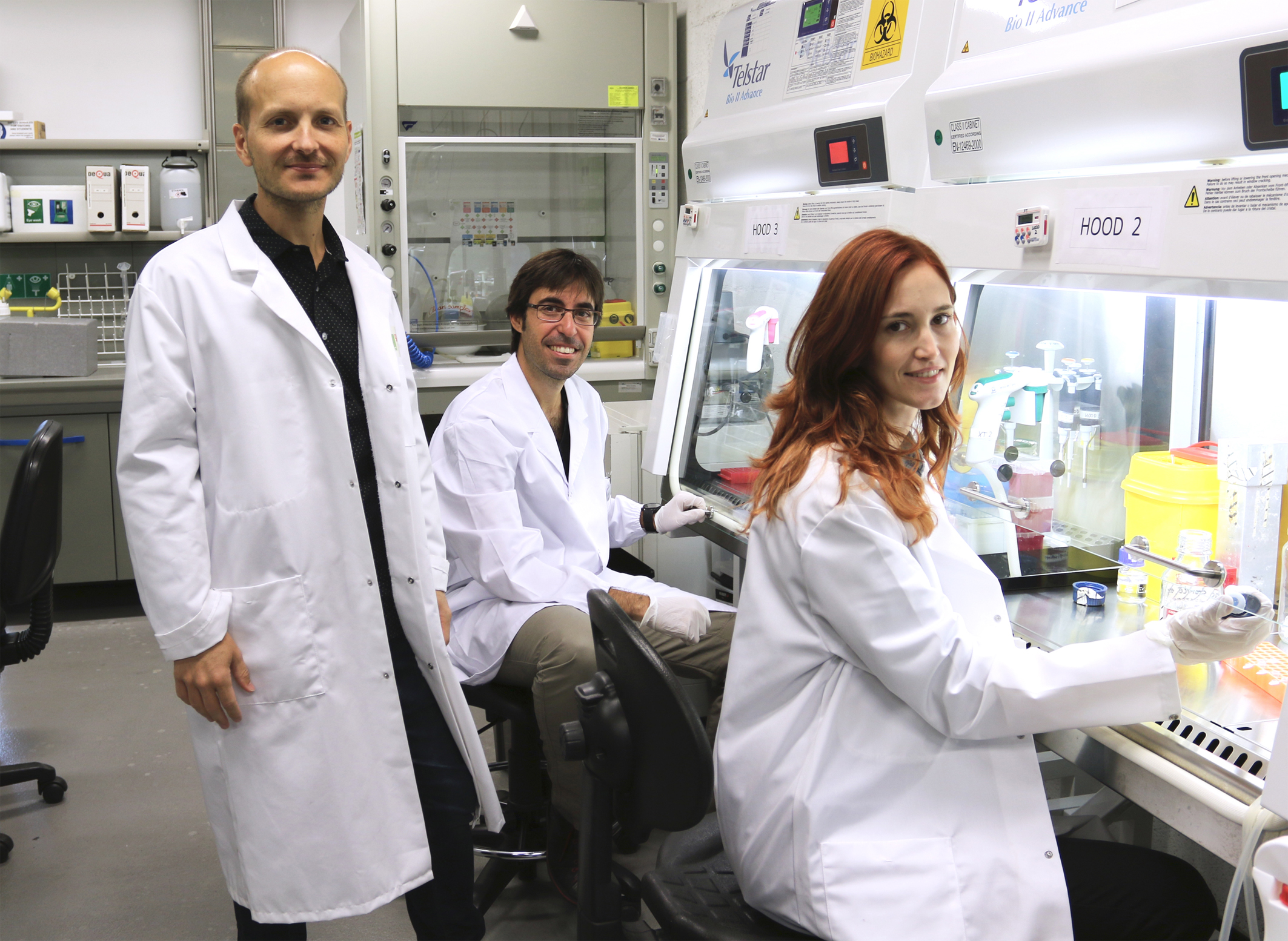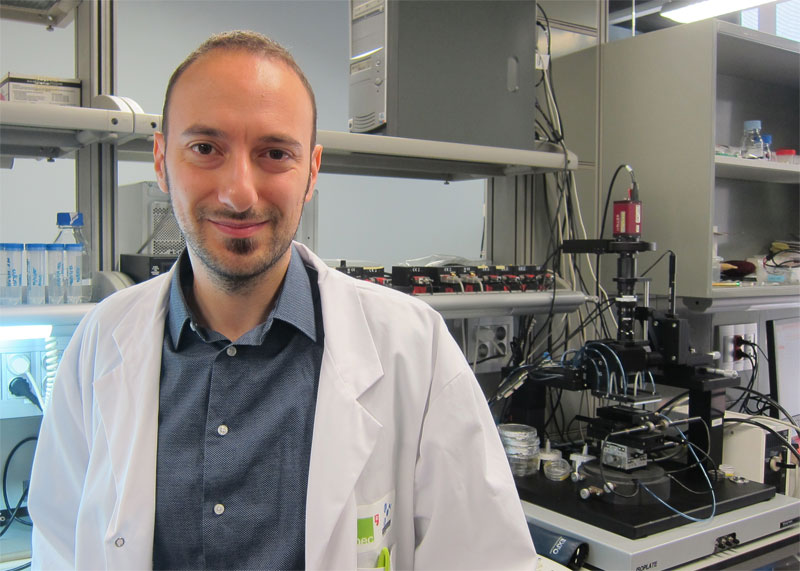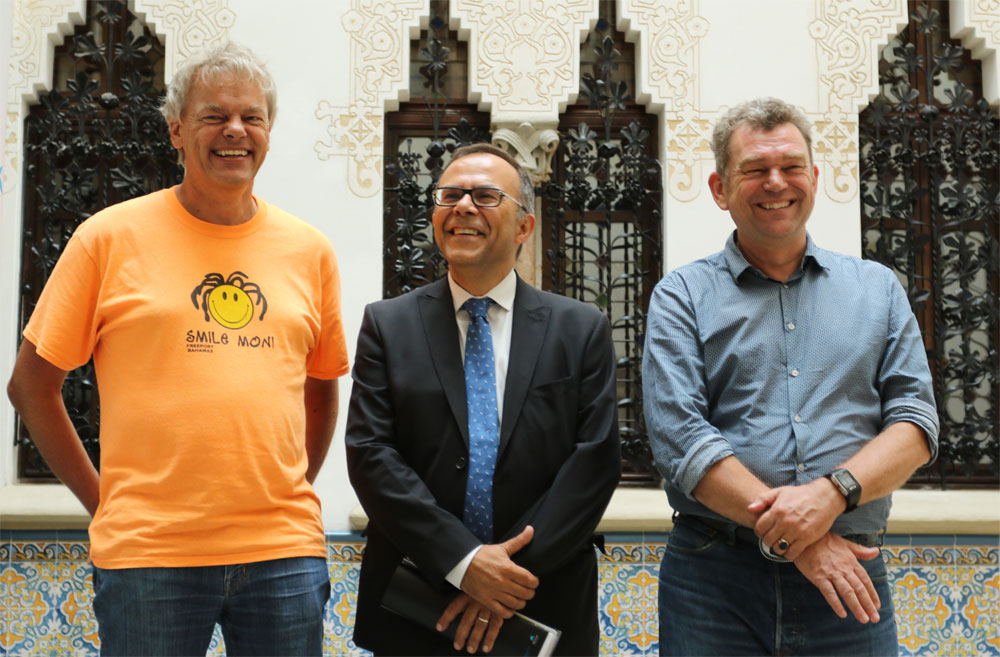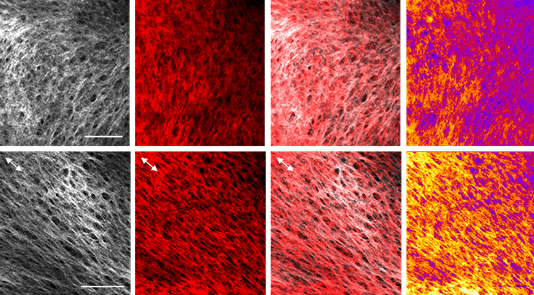Cell collisions reveal a new type of wave
 Researchers at the Institute for Bioengineering of Catalonia (IBEC) have observed, for the first time, mechanical waves that form after collisions between cellular tissues.
Researchers at the Institute for Bioengineering of Catalonia (IBEC) have observed, for the first time, mechanical waves that form after collisions between cellular tissues.
After a collision, cells are pushed and deformed into waves that travel at a speed of three millimeters a day. This unexpected behavior defies what we know about cellular dynamics, and could be relevant to understand embryonic development or metastasis.
Mechanical waves – such as seismic waves, sound, or waves in the sea – are a phenomenon easily explained by the laws of physics: when two particles collide, a wave travels through the surrounding material.







